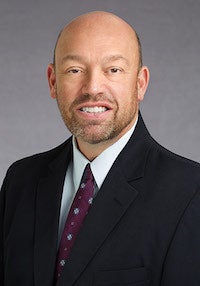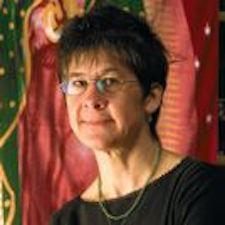Surviving Thanksgiving, Holiday Dinners
Thanksgiving is a time for family and friends, but it is also a time when everyone gets together at dinner … and we might (probably) do not share the same political points-of-view. No one wants to start a political fight over stuffing, so how do you grin and eat in such situations? Experts from USC help you survive the Thanksgiving dinner with tips and insight.
Contact: Jeremy Pepper, (213) 740-8606 or pepper@usc.edu
Living through a political civil war

“Historically, in times of great change, a backlash emerges. This sort of backlash leads to polarization, and people with different opinions then view one another not as political adversaries, but as evil.
“The election of President Barack Obama brought out some of the best, but also some of the worst, parts of American politics. Under President Donald Trump, the backlash has been weaponized, and as progressives fight back, the result is that we are living through a political civil war in America.
“Under normal circumstances, a midterm election result that led to divided government would push the system toward compromises. But the times are not normal. Those who value civility will have to redouble their efforts to return to a political dialogue where we respect each other and respect the truth.”
Robert Shrum is the director of USC Dornsife’s Center for the Political Future, which aims to address the political divide through education, research and practice. He is also the Carmen H. and Louis Warschaw Chair in Practical Politics at USC Dornsife and has been director of the Jesse Unruh Institute of Politics. Shrum has a storied career as an author and campaign adviser to Democratic candidates. The Atlantic Monthly described him as “the most sought-after consultant in the Democratic Party.”
Contact: Shrum can be reached at (202) 338-1812 or shrum@usc.edu
Think before you speak
“The holidays offer an opportunity in what might otherwise be a busy work period to break away  from the usual everyday pressures. Interaction with family and friends may inspire discussion of topics and perspectives which are a bit freer than one may find elsewhere, such as school or the workplace.
from the usual everyday pressures. Interaction with family and friends may inspire discussion of topics and perspectives which are a bit freer than one may find elsewhere, such as school or the workplace.
“In this politically and socially charged time we may be surprised at the perspectives our friends and relatives voice. Comments made by others may incite or inspire. We may be inclined to share points of view on people and issues we might not share elsewhere.
“It is important to be mindful of the repercussions. Think before you speak. That’s not to say you can’t say something, it’s whether what you have to say reflects good judgment. Is it good for the group? Are you looking to trigger a reaction, as siblings may have done years before? Or are you looking to have a positive experience around people you care about and who care about you?
“If good judgment and discretion can be used to bring people together, rather than to inflame differences and anger, the depth and meaning of the holiday time spent together will magnify. Intentional efforts to look each other in the eye, to listen respectfully, to reflect on the points of view of others, and to find common ground seem more valuable now than ever before.”
Thomas Lenz handles all aspects of labor and employment law issues and heads the traditional labor and National Labor Relations Board practices at Atkinson, Andelson, Loya, Ruud & Romo. He works with employers in all major industries across California and the West. Lenz currently serves as chair of the Labor and Employment Section for the State Bar of California, and is a lecturer at USC Gould.
Contact: Lenz can be reached at (562) 274-5755 or tlenz@aalrr.com or Gilien Silsby at (213) 740-9690 or gsilsby@law.usc.edu
Disappearing family ties
Blood is thick er than water, the old adage goes, but Lisa Bitel, Dean’s Professor of Religion and professor of history, notes that family bonds are not determined by genes alone. Historically, they have been reinforced by another common thread — religion.
er than water, the old adage goes, but Lisa Bitel, Dean’s Professor of Religion and professor of history, notes that family bonds are not determined by genes alone. Historically, they have been reinforced by another common thread — religion.
“There was already this tendency for families to dissolve, and then the religious ties that had held them together are dissolving, too.
“So, if you come together, what is the basis for cohesion? Maybe the basis is tradition, but what do you talk about? Politics is so much a part of the conversation these days. The weather only goes so far.”
Lisa Bitel studies the social, cultural, and religious history of medieval Europe. She has written four books about religion and/or gender in early medieval Europe, one book about religious apparitions and visions in contemporary California, and has published articles about sex, dreams, architecture, and saints, among other topics.
Contact: Bitel can reached at (213) 821-2150 or bitel@usc.edu
Survival tips for family gatherings
“Adults need to think: What do you want for your children to experience? What kind of memories do you want these gatherings to create for your children?
“Give some forethought to your goals for the gathering and your strategy for navigating touchy subjects.
“What is your personal priority for this family gathering? Do you want to have a political discussion with somebody who sees things differently and turn this into an opportunity to learn something new? Or is the priority to create a time for family to reunite around a holiday event, and maybe reminisce about long ago holiday celebrations? Or talk with new family members about their family traditions growing up?”
“And if someone else brings up divisive issues, be aware of your own hot buttons and don’t get drawn in on those discussions if you don’t want to have a political argument. You can think in advance about ways to sidestep the argument and guide the conversation in directions that you want it to go.”
Gayla Margolin is a professor of psychology and pediatrics at USC Dornsife, and an expert on marital conflict and violence. Margolin is well known for her work on family systems, with specific emphasis on ethical and legal issues surrounding family therapy, and treatment and assessment considerations in marital and family therapy.
Contact: Margolin can be reached at (213) 740-2308 or margolin@usc.edu



